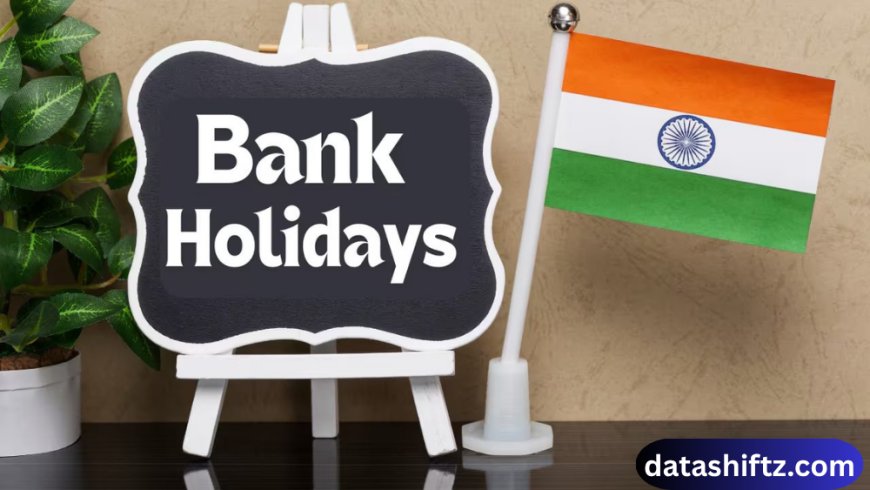Bank Holidays: Understanding Their Significance and Impact

Introduction
Bank holidays are special days designated by governments or banking authorities when banks, financial institutions, and often other businesses remain closed. They play an essential role in providing employees with a break from work, facilitating administrative tasks, and observing national or cultural celebrations. While bank holidays are primarily associated with banks, their influence extends to businesses, schools, and public services, making them an integral part of the economic and social calendar.
This article explores the concept of bank holidays, their history, reasons for observance, types, and impact on society and the economy.
History and Significance of Bank Holidays
Origins of Bank Holidays
The concept of bank holidays dates back to the 19th century. In the United Kingdom, the first official bank holidays were established under the Bank Holidays Act of 1871. The idea was to provide workers with rest days and reduce the need for banks to operate on religious or culturally significant occasions. Over time, other countries adopted similar practices, integrating local festivals, public observances, and national events into their banking calendars.
Cultural and National Importance
Bank holidays are often aligned with national celebrations, religious festivals, or historical events. These days allow citizens to participate in festivities, pay respects to historical figures, or enjoy leisure time with family and friends. Some of the commonly observed bank holidays include:
-
Republic Day / Independence Day: National pride and remembrance.
-
New Year / Christmas: Cultural and religious observances.
-
Labor Day / May Day: Recognizing workers’ contributions.
Bank holidays serve as a reminder of cultural heritage, national unity, and the importance of rest in maintaining work-life balance.
Types of Bank Holidays
Bank holidays can be broadly classified into several types based on their purpose and origin.
Types of Bank Holidays
| Type | Description |
|---|---|
| National Holidays | Celebrated across the entire country (e.g., Independence Day) |
| Religious Holidays | Associated with religious observances (e.g., Diwali, Christmas) |
| Regional Holidays | Specific to states or regions (e.g., Pongal in Tamil Nadu) |
| Special Observance Days | Commemorate significant events or figures (e.g., Gandhi Jayanti) |
| Public Holidays | General holidays recognized for public rest and administrative purposes |
Key Features
-
Banks and financial institutions are officially closed.
-
Public transport may operate on a limited schedule.
-
Businesses may remain open but with reduced staff.
-
Certain essential services, such as hospitals, remain functional.
Major Bank Holidays in India
-
Republic Day (26 January) – Celebrates India becoming a republic.
-
Independence Day (15 August) – Marks India’s independence from British rule.
-
Gandhi Jayanti (2 October) – Honors Mahatma Gandhi’s contributions.
-
Diwali – Festival of lights, celebrated nationwide with banking closures.
-
Christmas (25 December) – Observed primarily in Christian-majority regions.
-
Holi – Festival of colors, regional bank holidays in certain states.
-
Good Friday – Observed in Christian communities across India.
-
Eid – Celebrated based on lunar calendar dates, regional bank closures.
-
Pongal / Makar Sankranti – Regional festival holidays in South India and North India.
-
New Year’s Day (1 January) – Public holiday in most regions.
Impact of Bank Holidays
Bank holidays affect not only banking operations but also the wider economy, public services, and daily life.
Economic Impact
-
Banking Operations: All banking transactions, including deposits, withdrawals, and loans, are postponed until the next working day.
-
Stock Markets: Financial markets often remain closed, affecting trading schedules and investment activities.
-
Business Activities: Many businesses may experience reduced operations, though retail and hospitality sectors often see increased activity.
-
Financial Planning: Companies and individuals plan payrolls, bill payments, and investments around bank holidays.
Social Impact
-
Rest and Recreation: Employees get a chance to rest and spend quality time with family.
-
Cultural Participation: Holidays enable participation in festivals and national celebrations.
-
Tourism Boost: Extended weekends during bank holidays promote domestic travel and tourism.
Effects of Bank Holidays
| Aspect | Positive Impact | Negative Impact |
|---|---|---|
| Banking & Finance | Employees get rest | Delays in transactions |
| Businesses | Retail sales may increase | Reduced workforce and productivity |
| Society & Culture | Promotes family bonding and cultural participation | Crowding and traffic during holidays |
| Tourism | Boosts local economy | Overcrowding at tourist spots |
Tips to Manage Bank Holidays
-
Plan Banking Transactions: Complete essential transactions in advance.
-
Budget Wisely: Consider potential increased spending during holidays.
-
Travel Smart: Book tickets and accommodations early to avoid rush.
-
Use Online Services: Many banking services remain operational digitally.
-
Stay Updated: Check government notifications for regional or special holidays.
Conclusion
Bank holidays are more than just days off—they are an integral part of societal, cultural, and economic life. They provide a balance between work and leisure, celebrate cultural and national heritage, and influence banking, business, and tourism sectors. Understanding the significance, types, and impact of bank holidays can help individuals and organizations plan effectively, ensuring that both personal and professional activities are managed efficiently.





























